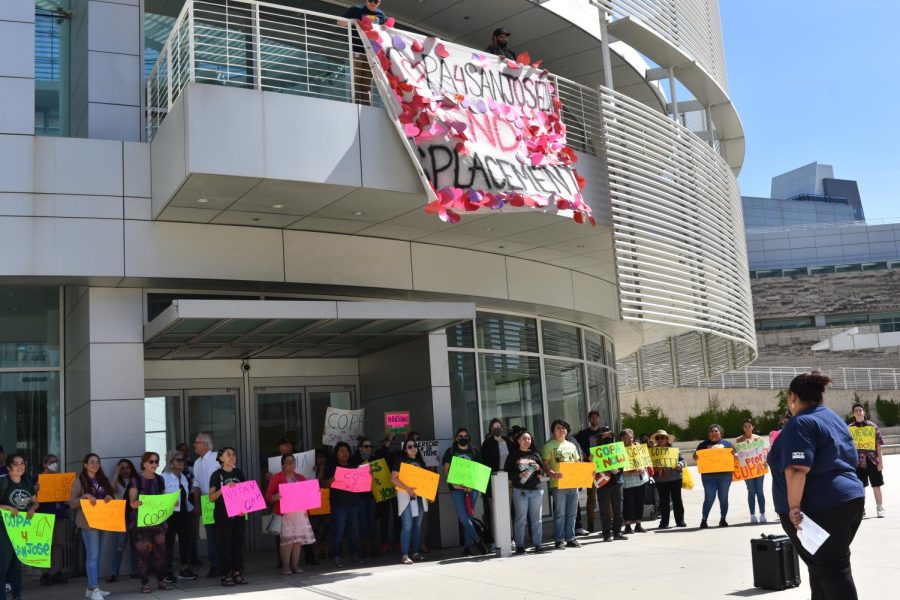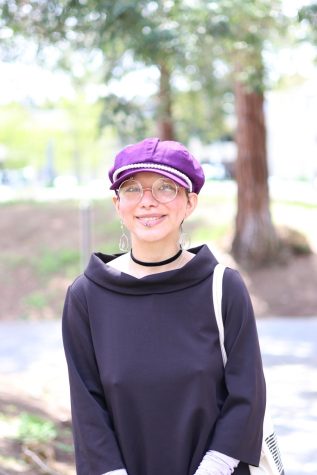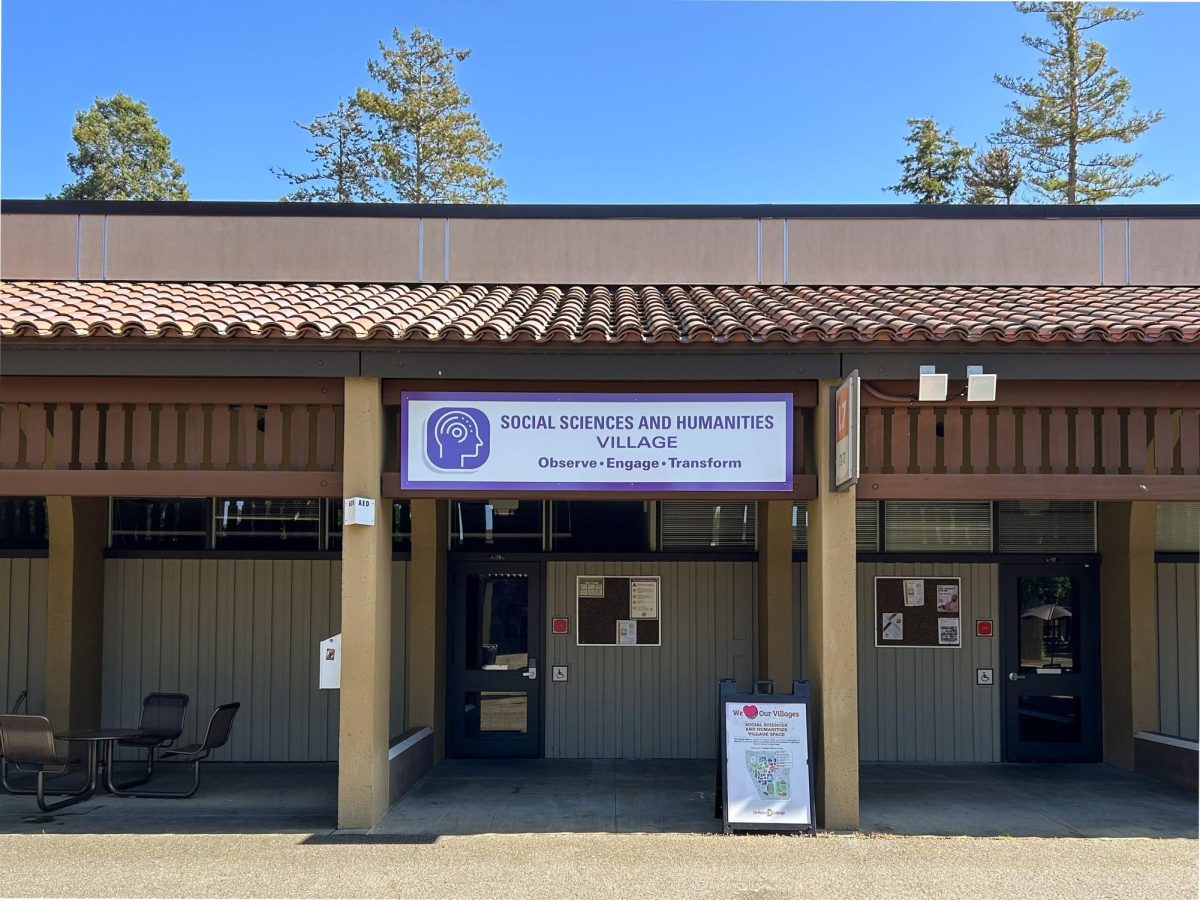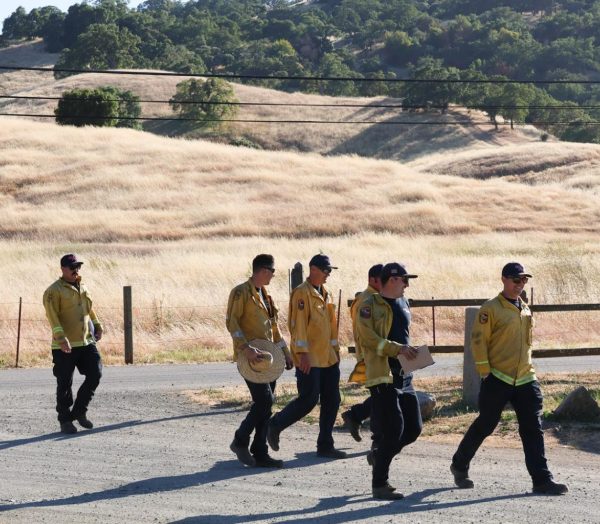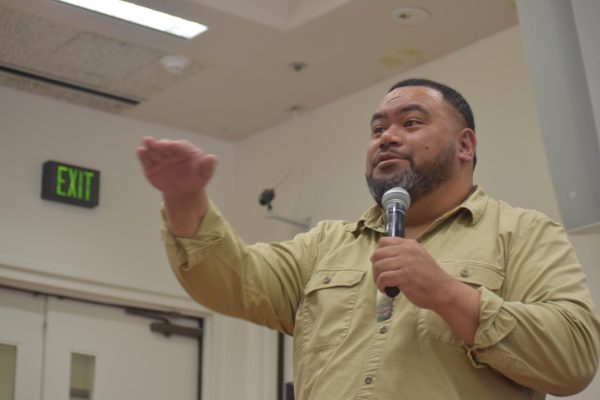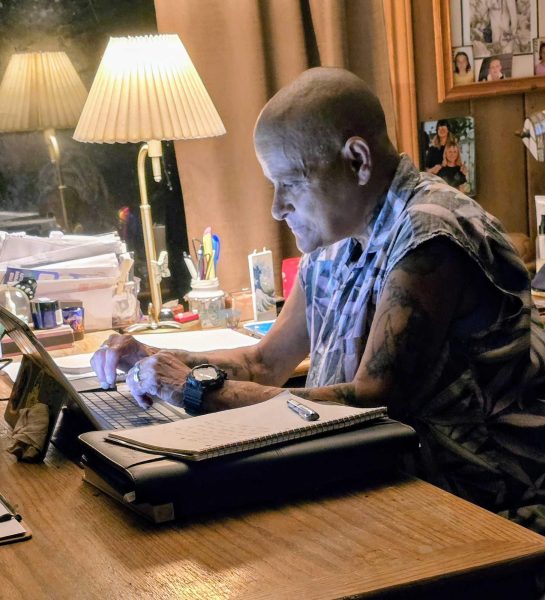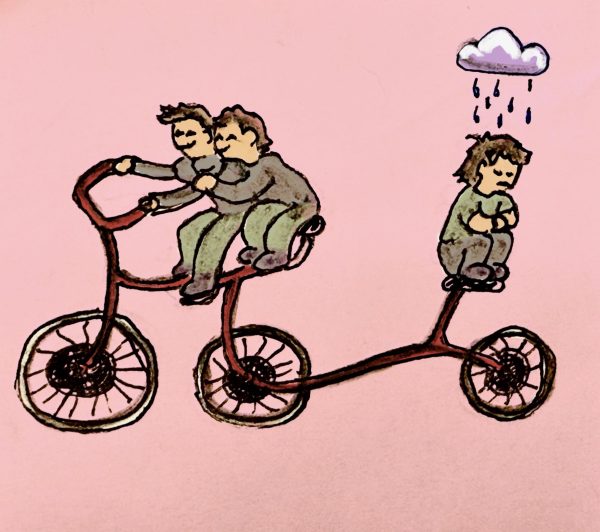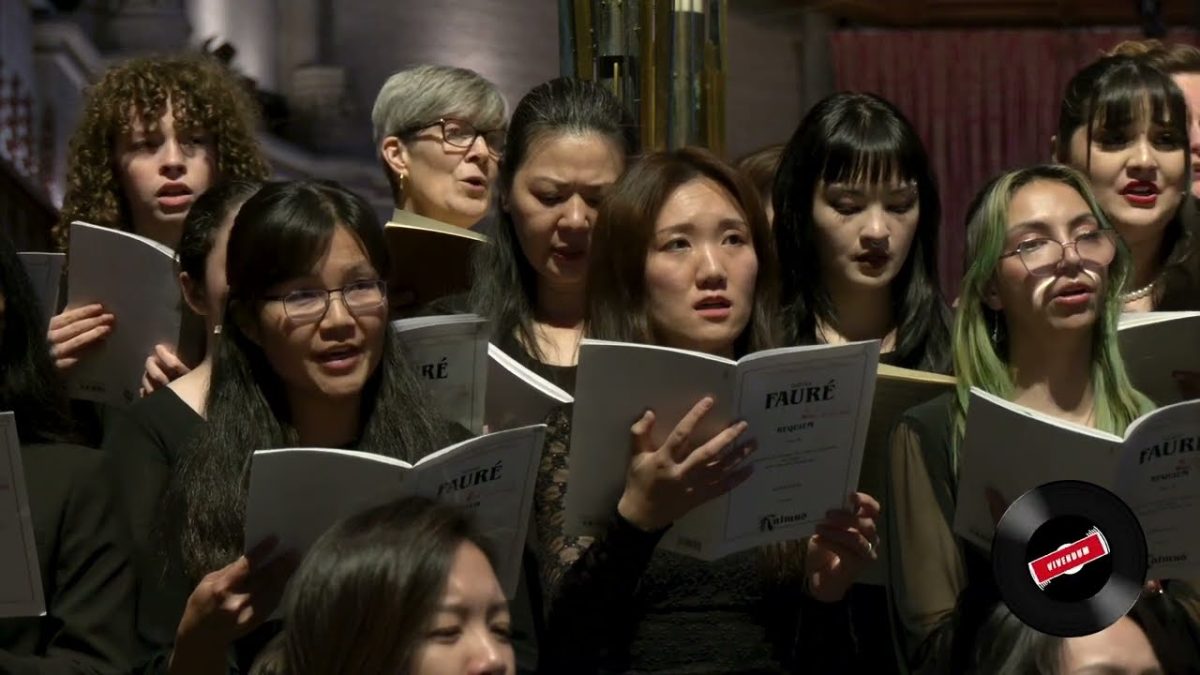Defeat of COPA and growing equity gap in the Bay Area
Rally members listen to testimonials and chant: “This is what community looks like” before heading into San Jose City Hall on April 25.
May 12, 2023
The Community Opportunity to Purchase Program, COPA, was denied by an overwhelming majority of San Jose council members on April 25.
In a rally organized by several non-profit organizations including Somos Mayfair and Amigos de Guadalupe, two community-led organizations focused on affordable housing and social justice, people shared testimonials, distributed signs and chanted in unison before heading inside San Jose City Hall.
Tafhari Franklin was unhoused and living only a few blocks away from City Hall a couple years ago. He is now a board member for the South Bay Community Land Trust and a resident of the organization’s first property acquisition. He shared his story and gave words of encouragement to the rally attendees.
“Our mission is ongoing,” Franklin said. “We’re on our way and we’re not going to stop. I know it sounds like a fairy tale but it’s not. I’m not a fairytale. I promise you guys this fight is worth it.”
A security guard told the community members to lower their voices before letting them in by groups of about a dozen people at the time.
“Elevators to the left, second floor,” the security guard said to the oncoming traffic.
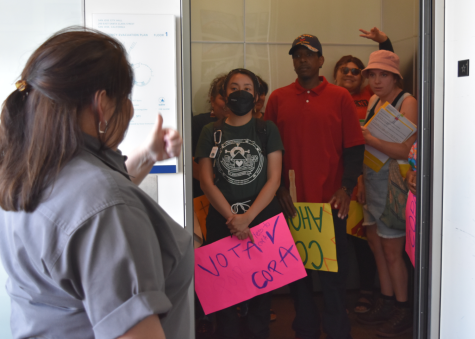
The last group for the rally members was joined by a group of COPA opposers who had just arrived. Both supporters and opposers of COPA stood shoulder-to-shoulder in the crowded elevator, and waited in a deafening silence for the doors to open on the second floor.
“Ellos están en contra (They are against it),” whispered someone inside the elevator.
As community members arrived at the city hall chambers at 3:30 p.m., the Department of Housing and Urban Development answered questions from the council members and mayor about COPA.
When the public comment section opened, more than a hundred community organizers, landlords, renters and homeowners came forward to speak on their support or opposition of COPA in short one minute speeches. The room was filled with people from side to side, sitting next to each other while holding signs that represented their views on the matter and listening to each others’ stories.
COPA allows more properties to be affordable by giving qualified non-profit organizations the right to make a first offer on a property that is up for sale and work with the city to keep property affordable in perpetuity, according to a COPA summary by the city of San Jose. Opposers, however, fear that this proposal will drive them out of business.
Steve Hemley is a real estate broker that has been working in San Jose for over 50 years. He said COPA will scare investors away from the city which “will make it more difficult for renters because there won’t be any incentive to create more property.”
He said that if COPA gets passed he will have to “sell his real estate and move out the city” to Monterey where he’s building a house.
“COPA has nothing to do with displacement,” Hamley said. “It’s got to do with a non-profit having the right to buy a piece of property where the seller doesn’t have the right to immediately sell it to somebody else. That’s not fair. In fact, I don’t think it’s constitutional.”
The city’s summary of COPA, wrote that owners selling their property will still have the right to decline an offer from a qualified non-profit (QNP) and advertise it in the open market as usual. If a different buyer makes an offer, the non-profit has the opportunity to make a counter-offer, a section of COPA that has caused controversy among mom-and-pop property owners.
“That’s not fair for an individual buyer,” said Jenny Zhao, a first generation immigrant, mom-and-pop property owner and member of the Business and Housing Network. “We (should) compete on the market, on the same terms at the same time.”
Zhao suggests that some mom-and-pop property owners are already providing affordable prices for their renters and “COPA is not necessary.”
“We, (as mom-and-pop landlords), make exceptions for people in need,” she said. “Sometimes they don’t have enough income, they don’t have a good credit score, they are single moms. Things that usually don’t meet the screening criteria. We help them because we also came from that position.”
Most COPA opposers are homeowners, realtors, and landlords themselves. Their experiences differ from those supporting COPA, who are mostly renters, people who have faced housing insecurity at some point in their lives and community organizers.
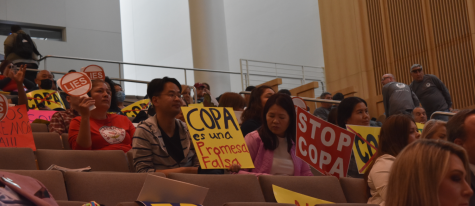
Maria Chavez is a mother of four preschool to high school aged children. While her husband works at an electronic store he’s been employed at for over 25 years and her older children go to school, she stays home to care for her three-year-old child.
She and her husband have shared a one-bedroom apartment with their children for four years and are considering moving to Gilroy as rent prices in San Jose continue to rise. Proposals like COPA would help people in her position to find affordable housing.
“My children don’t want to move out and I would like to stay in the city, but I’m in a situation where if I don’t find anything cheaper I’m going to have to move again,” Chavez said.
Chavez and her family were evicted from their previous apartment and had to live in a car for two weeks. She said her current apartment is not in the “best state” but doesn’t complain for fear of another eviction.
“We have to conform,” she said.
Yunery Ramon, a 15-year-old San Jose resident and a Somos Mayfair intern for outreach said she believes “COPA will help her community avoid displacement.” She said her family of four siblings and two parents are not currently facing housing insecurity but have been displaced.
“My community got very expensive and we had to move,” Ramon said. “We asked for money from friends and family but even with their help it wasn’t enough.”
Matt Gustafson, another community organizer at Somos Mayfair shared this sentiment. He said that while he has been a homeowner for over nine years, he works with “community members, friends and co workers who suffer under an unjust housing system and pay extraordinary rents to landlords who abuse them.”
“I believe housing is a human right and that everybody, no matter where they come from, what language they speak and what their documentation status is deserves stable, secure and affordable housing,” Gustafson said.
One by one, members of the public started leaving as the issue dragged for over five hours.
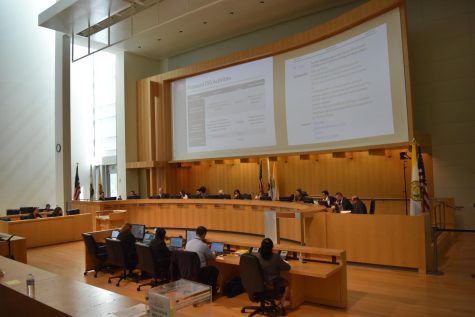
After the lengthy public comment section, councilmembers shared their own thoughts and proceeded to vote at around 8 p.m.
The remainder of the community members raised their “LIES” and “BOO” signs at council members Foley and Doan as they spoke in opposition to COPA and shook their hands upwards as council members Ortiz and Torres spoke in support of it.
Foley was a real-estate broker.
Ortiz and Torres both talked about their personal experiences with housing insecurity and displacement.
The final vote to deny COPA serves as a reflection of the gap in equity and empathy between those who own property and those who don’t.
As community members left the chambers some waited for the elevators with an empty look, almost as if looking into the abyss.
“It didn’t pass,” said someone to their companion on the elevator.
By 9:45 p.m. almost every single COPA supporter or opponent had left, and the seats in the chambers were empty.



